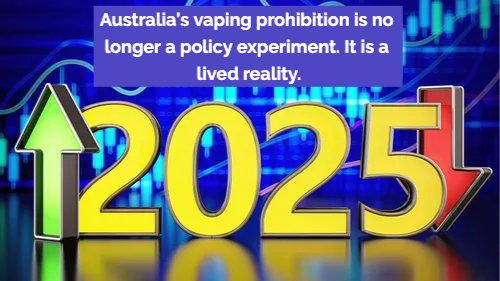World Vape Day 2025: Exposing the WHO’s War on Harm Reduction
- Alan Gor

- May 30, 2025
- 3 min read

Alan Gor 30 May 2025
Each year on World Vape Day, consumers, advocates, scientists, and public health reformers come together to celebrate a life-saving reality: millions of smokers around the world have quit deadly cigarettes thanks to vaping and other safer nicotine alternatives. But as we mark World Vape Day 2025, we’re forced to confront a bitter truth: the World Health Organisation (WHO) and its governing treaty, the Framework Convention on Tobacco Control (FCTC), continue to deny the principle of harm reduction in tobacco policy. And their refusal to evolve is killing people.
The Core of the Problem: WHO’s Silence on Harm Reduction
The WHO’s FCTC claims to be the leading global instrument to reduce tobacco-related death and disease. Yet Article 1(d) of the treaty — the very definition of “tobacco control” — explicitly includes harm reduction as a core pillar, alongside supply and demand reduction. This isn’t some optional add-on. It’s part of the original treaty text, ratified by 183 countries.
So why, after 20 years, has the WHO done everything in its power to ignore or erase harm reduction from the conversation?
Because embracing harm reduction would mean recognising that not all nicotine use is equally dangerous. It would mean acknowledging that smoking kills, but vaping doesn’t. It would mean supporting smokers who have switched, rather than punishing them. And it would require the WHO to admit that their current abstinence-only, prohibitionist stance is both scientifically indefensible and morally bankrupt.
A Global Disconnect
The evidence in favour of safer nicotine alternatives is overwhelming:
The UK’s Royal College of Physicians and Public Health England have repeatedly stated that vaping is at least 95% less harmful than smoking.
Sweden, where snus (a smokeless nicotine product) is widely used, has the lowest smoking-related death rate in Europe.
Japan has seen cigarette sales plummet since the rise of heated tobacco products.
New Zealand, where vaping is regulated and accessible, is seeing record-low smoking rates, especially among Māori communities.
But none of this matters to the WHO. Instead of recognising these public health wins, they’ve doubled down on fear, misinformation, and anti-vape ideology. Their messaging continues to equate all nicotine use with harm. They peddle worst-case hypotheticals while ignoring actual, measurable harm reduction outcomes happening in real time around the world.
COP10: A Closed Door to Consumers
The recent FCTC COP10 (Conference of the Parties) was a masterclass in exclusion. Consumers, the very people affected by these policies, were barred from participating. Instead, unelected bureaucrats and ideologically driven NGOs pushed for more restrictions, more taxes, and even bans on life-saving products like vaping devices, nicotine pouches, and heated tobacco.
They’re not listening to science. They’re not listening to the people. They’re certainly not listening to smokers trying to quit.
What they are doing is preserving a failed status quo that benefits governments collecting tobacco taxes and pharmaceutical companies selling expensive, ineffective quit-smoking drugs. Meanwhile, more than 7 million people die each year from smoking-related diseases.
The Price of Denial
The human cost of this denial is staggering. Every policy that bans, restricts, or overregulates safer alternatives protects cigarettes and protects the cigarette industry. Prohibition never works — it just drives products underground, into black markets where they’re unregulated, untested, and often more dangerous.
In countries like Australia, where the government has embraced a pharmacy-only model and criminalised personal vape imports, youth vaping has not declined, but smoking among vulnerable groups remains stubbornly high, and an illicit vape market is flourishing. In effect, Australia is a textbook case of what happens when ideology trumps evidence: more smoking, more harm, less public trust.
World Vape Day: A Global Consumer Rebellion
World Vape Day isn’t just a celebration of survival — it’s a global act of resistance. It’s about standing up to powerful institutions that have abandoned their own mission. It’s about demanding that the WHO and FCTC stop pretending harm reduction doesn’t exist, and start listening to the people they claim to serve.
We will not be silenced.
We will not be criminalised for quitting smoking.
We will not accept a world where science is ignored and smokers are left behind.
A Better Future is Possible — Without the WHO
If the WHO and FCTC refuse to lead, others must. Progressive governments, independent scientists, healthcare professionals, and — most of all — consumers must continue to fight for evidence-based, humane, and inclusive public health policies. The war on nicotine isn’t just irrational — it’s unethical. And like every moral panic in history, it will eventually collapse under the weight of truth.
But until then, we fight.
This World Vape Day, we honour the lives saved by harm reduction.
And we call out those still standing in the way.


